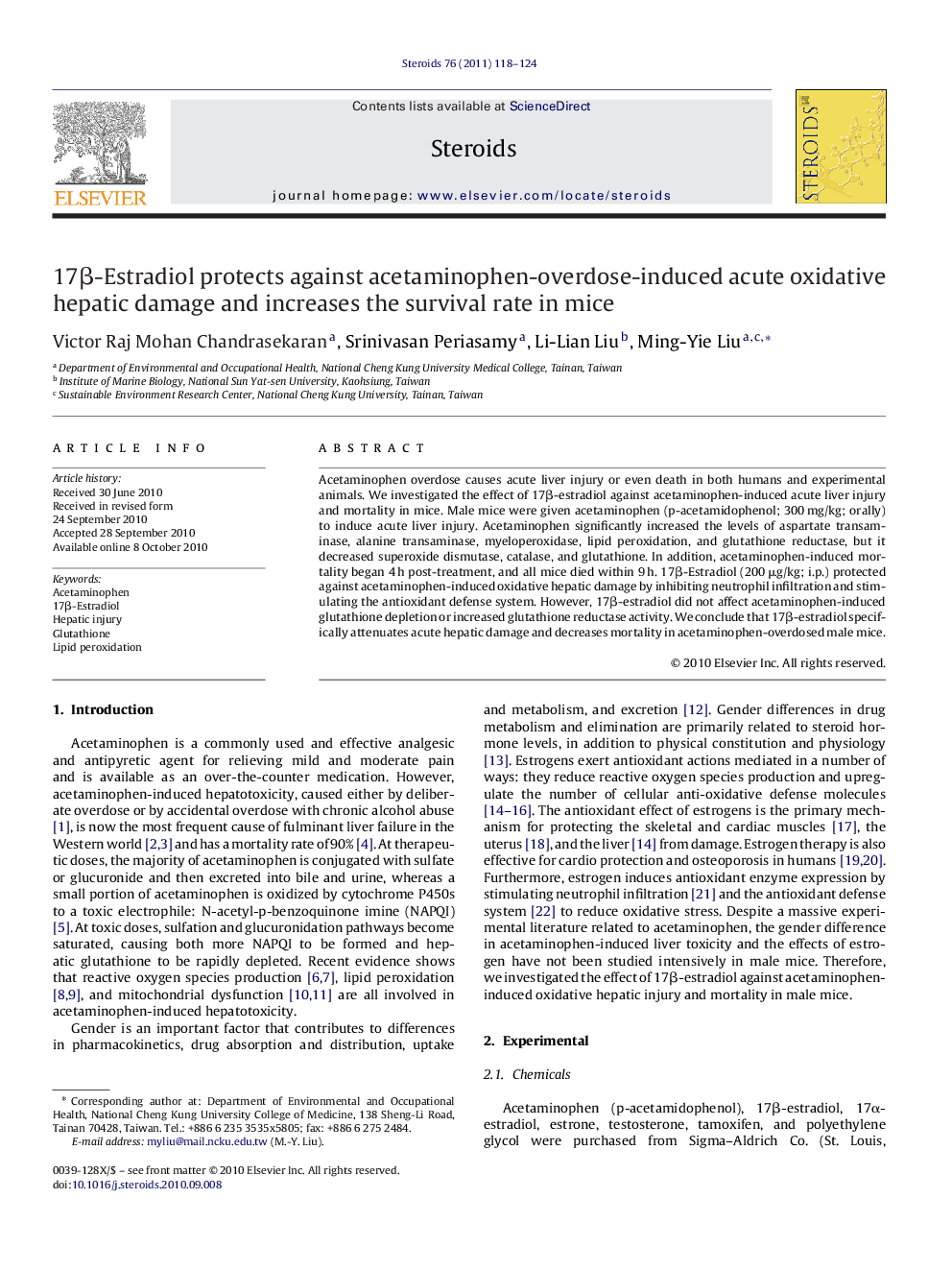| Article ID | Journal | Published Year | Pages | File Type |
|---|---|---|---|---|
| 2028784 | Steroids | 2011 | 7 Pages |
Acetaminophen overdose causes acute liver injury or even death in both humans and experimental animals. We investigated the effect of 17β-estradiol against acetaminophen-induced acute liver injury and mortality in mice. Male mice were given acetaminophen (p-acetamidophenol; 300 mg/kg; orally) to induce acute liver injury. Acetaminophen significantly increased the levels of aspartate transaminase, alanine transaminase, myeloperoxidase, lipid peroxidation, and glutathione reductase, but it decreased superoxide dismutase, catalase, and glutathione. In addition, acetaminophen-induced mortality began 4 h post-treatment, and all mice died within 9 h. 17β-Estradiol (200 μg/kg; i.p.) protected against acetaminophen-induced oxidative hepatic damage by inhibiting neutrophil infiltration and stimulating the antioxidant defense system. However, 17β-estradiol did not affect acetaminophen-induced glutathione depletion or increased glutathione reductase activity. We conclude that 17β-estradiol specifically attenuates acute hepatic damage and decreases mortality in acetaminophen-overdosed male mice.
Research highlights▶ 17β-Estradiol increases the survival rate against acetaminophen-overdose-induced mortality. ▶ 17β-Estradiol inhibits acetaminophen-induced neutrophil infiltration and hepatic damage. ▶ 17β-Estradiol's effect on acetaminophen-induced hepatic damage is not glutathione-dependent.
